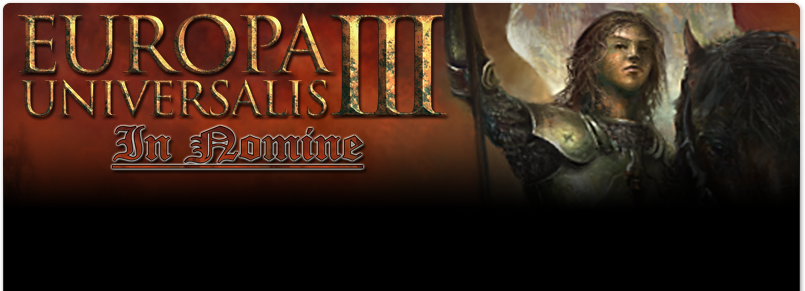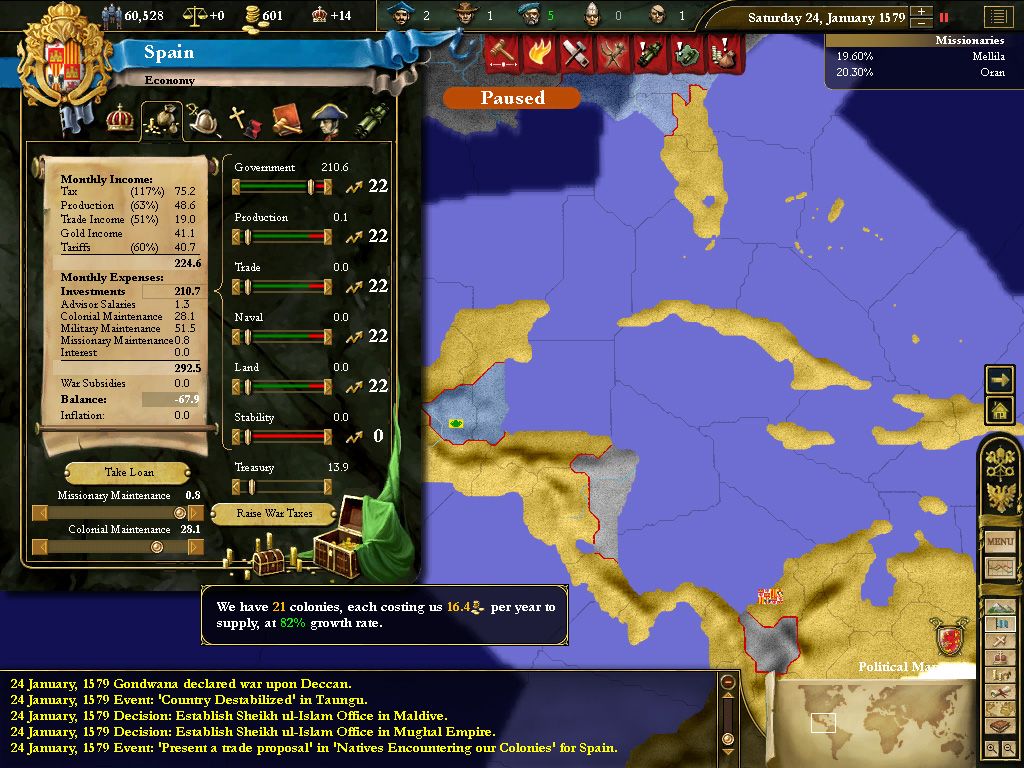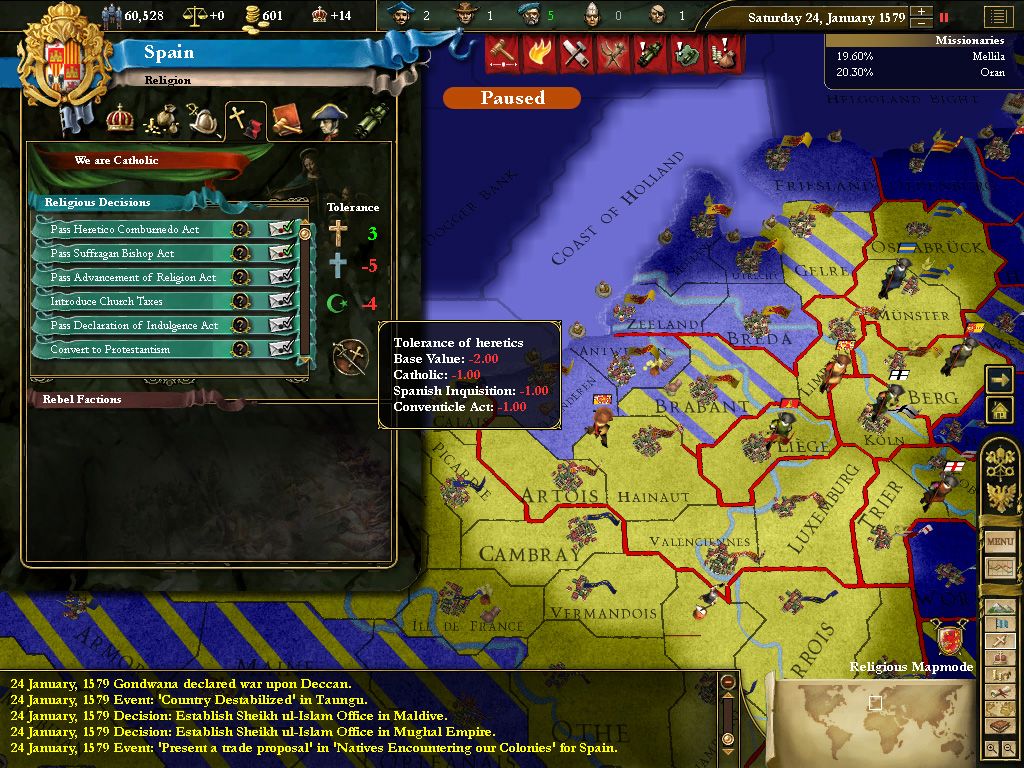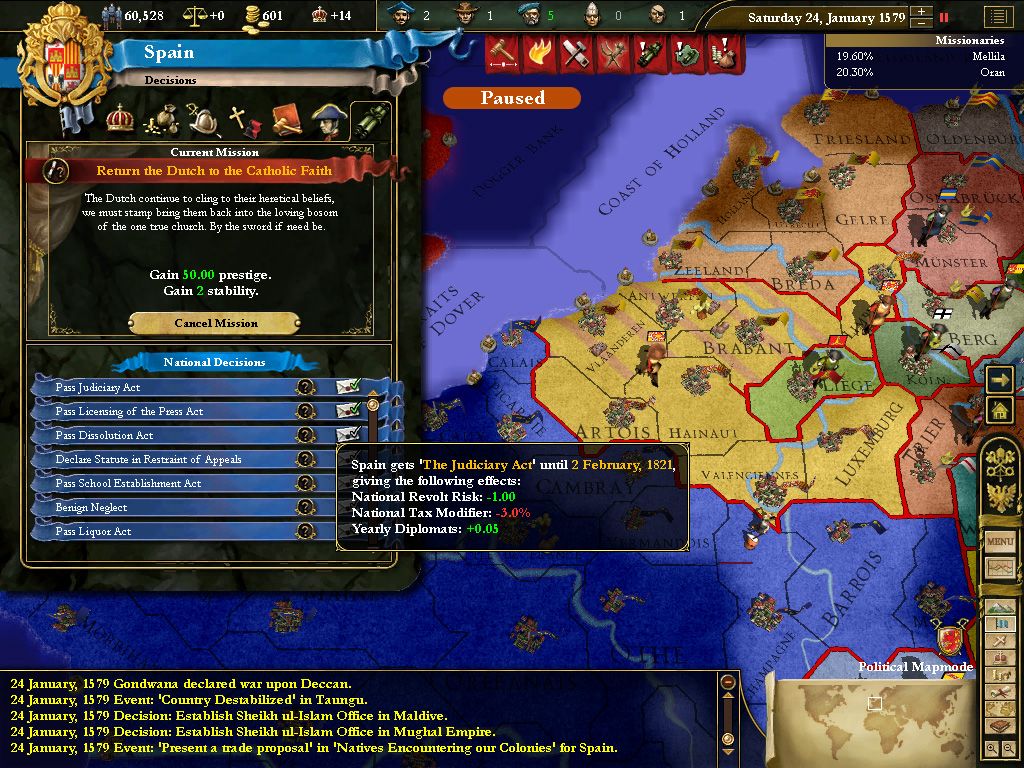Retro Replay Review
Gameplay
Europa Universalis III: In Nomine builds on the deep strategic foundation of EU3 and its Napoleon’s Ambition expansion, stretching the timeline back to October 13, 1399. This new starting point unlocks 53 additional years of play and introduces a host of medieval powers—including the crumbling Byzantine Empire—for you to guide through Europe’s tumultuous renaissance. You’ll need both EU3 and the Napoleon’s Ambition expansion installed, but once you’re in, the added layers of complexity will make every decision feel weighty and impactful.
(HEY YOU!! We hope you enjoy! We try not to run ads. So basically, this is a very expensive hobby running this site. Please consider joining us for updates, forums, and more. Network w/ us to make some cash or friends while retro gaming, and you can win some free retro games for posting. Okay, carry on 👍)
The expansion overhauls the religion and colonization mechanics to demand more careful resource management. Instead of one-off missionaries or instant colonial planting, each agent now carries an ongoing monthly maintenance cost. You set the pace of growth with new missionary and colonial maintenance sliders, balancing your desire for swift conversion or rapid territorial expansion against the strain on your treasury. Push too fast, and your economy will buckle under the weight of your ambition.
Religious tolerance has been reimagined with lasting consequences: you can no longer flip tolerance sliders at will. Faiths fall into three categories—State religion, heretics, and heathens—and their default tolerance levels are fixed by national ideas and the new Decisions system. This change makes theological policy both more realistic and more strategic, as you carefully weigh local unrest and long-term stability rather than chasing quick fixes.
Rebel factions have also received a substantial upgrade. Now you’ll face nationalist, colonial, noble, and even sectarian revolts, each with their own demands and behaviors. Some rebellions may convert your provinces to alternate faiths, while others threaten full independence. If you can’t suppress your rebels by force, you can negotiate—but at the cost of prestige, policy shifts, or even territorial concessions. The dynamic interplay between rebellion and governance keeps you engaged in every province, from Scottish lowlands to Anatolian hills.
The Decisions system adds another strategic layer you can invoke at will, provided your realm meets the prerequisites. From institution of the Spanish Inquisition to the formation of Great Britain, these on-demand edicts mirror historical milestones and grant powerful bonuses. Alongside new mission structures, expanded diplomacy, and enhanced AI behaviors, In Nomine offers a gameplay experience where every choice forges a unique path through European history.
Graphics
While Europa Universalis III: In Nomine isn’t chasing photorealism, its map visuals remain clear and evocative. Provinces are color-coded by ownership, terrain details subtly denote mountains, rivers, and coastlines, and unit icons are easily distinguishable at a glance. The extended timeline means you’ll recognize the same borders shifting dramatically as centuries unfold under your rule.
The interface has seen thoughtful tweaks to accommodate the expansion’s deeper mechanics. New tabs and sliders for missionary and colonial maintenance blend seamlessly into the economy screen, and tooltips provide concise, context-sensitive explanations of complex modifiers. Scorched-earth tactics, parliamentary elections in republics, and advisor management all have dedicated UI panels that minimize guesswork and let you focus on grand strategy rather than hunting through menus.
Animations remain sparse—EU3 prioritizes clarity over spectacle—but subtle flourishes, like the rising flags of newly formed nations or the flicker of a mission completion screen, provide satisfying feedback. Graphical performance is smooth even in the late game with dozens of nations, and the engine handles complex diplomatic threads and rebel uprisings without significant slowdowns.
For modders and community creators, In Nomine’s graphics are a flexible canvas. Custom map overlays, nation flag replacements, and user-created event packs slot into the existing art pipeline easily. Whether you’re tweaking a few textures for clarity or building an entirely new campaign map, the game’s visual framework encourages creativity without sacrificing stability.
Story
In Nomine doesn’t deliver a traditional linear narrative, but the emergent storylines rival the greatest historical epics. You might begin as a minor Italian duchy, then find yourself thrust into dynastic unions that stretch from Iberia to Scandinavia. Each decision, from embracing the Renaissance to forging colonial charters, propels your nation along a tapestry of political intrigue and military conquest.
Country-specific Decisions fill out your realm’s narrative flavor. Spain can carry out the Reconquista and establish the Inquisition, Russia can elevate its Orthodox Patriarchate, and England can navigate the Hundred Years’ War before shepherding the Acts of Union. These tailored edicts make each campaign feel like an authentic retelling of a storied past while still allowing for “what-if” scenarios that diverge wildly from established history.
Rebel uprisings and religious turmoil add unpredictable twists to your chronicle. Nationalist revolts might spark an unexpected independence war, while heretical rebellions could trigger a chain reaction of conversions and schisms. Balancing the demands of papal dividends, Holy Roman Empire interventions, and colonial governors fosters a living, breathing narrative that evolves with every slider adjustment and peace treaty.
Multiplayer campaigns become co-authored sagas, as friends take on rival powers or forge alliances that reshape the geopolitical landscape. Shared objectives, trade agreements, and dynastic marriages can lead to stories of betrayal and redemption that no scripted RPG could replicate. In Nomine’s adaptive storytelling is powered entirely by player choice and AI ambition.
Overall Experience
Europa Universalis III: In Nomine elevates an already expansive grand strategy title to new heights. The requirement of owning base EU3 and Napoleon’s Ambition may feel like a steep investment, but the wealth of content justifies the cost for dedicated strategy fans. From the expanded medieval start date to the intricate web of religious, colonial, and diplomatic mechanics, the game rewards careful planning and creative problem-solving.
The learning curve remains steep, but comprehensive tooltips, a revised interface, and community tutorials ease newcomers into 15th-century statecraft. Veteran players will appreciate the nuanced changes to rebels, decisions, and maintenance systems, which prevent stale “click-through” strategies and encourage genuine engagement with each nation’s unique challenges.
Performance is reliable even in large-scale late-game scenarios, and the modding community continues to produce scenario packs, graphical overhauls, and quality-of-life patches that breathe fresh life into every playthrough. Multiplayer adds replay value measured in hundreds of hours, where human unpredictability sparks stories no AI alone could generate.
In Nomine is a must-have for grand strategy enthusiasts seeking the deepest possible dive into pre-modern geopolitics. It demands patience and strategic foresight, but for those ready to shoulder the mantle of kings, caliphs, and republics over an extra half-century of history, the rewards are limitless. Prepare to rewrite history—one decision at a time.
 Retro Replay Retro Replay gaming reviews, news, emulation, geek stuff and more!
Retro Replay Retro Replay gaming reviews, news, emulation, geek stuff and more!









Reviews
There are no reviews yet.